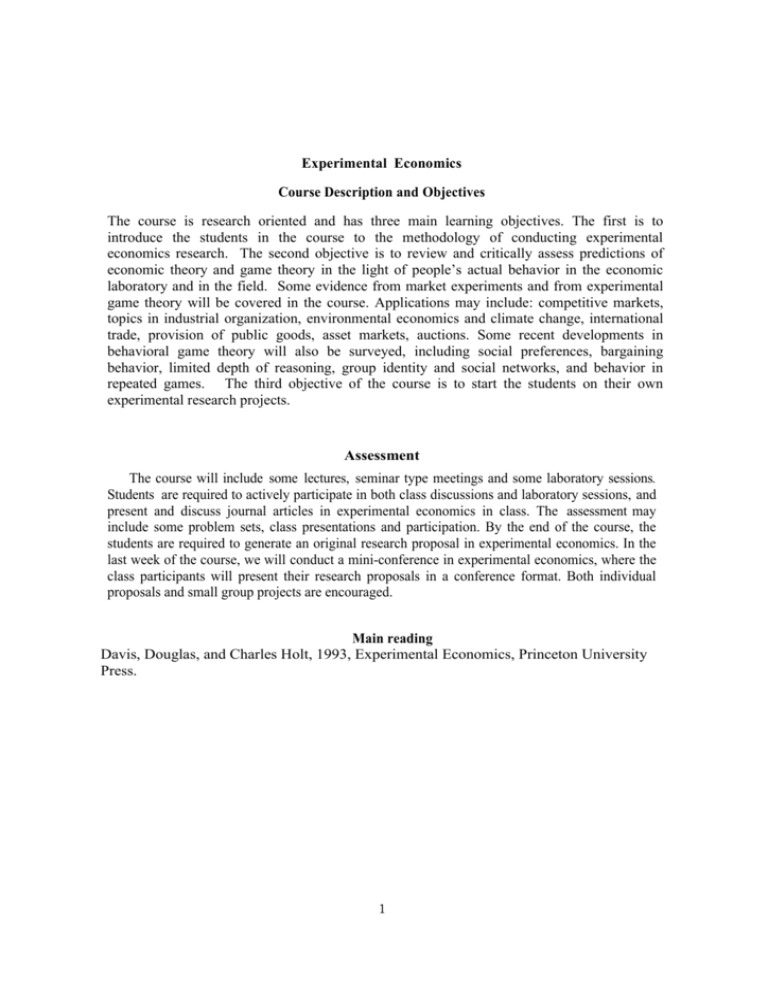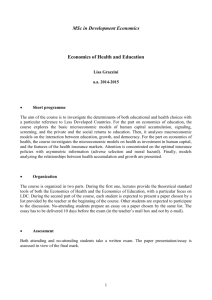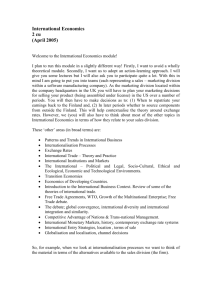Davis, Douglas, and Charles Holt, 1993, Experimental Economics
advertisement

Experimental Economics Course Description and Objectives The course is research oriented and has three main learning objectives. The first is to introduce the students in the course to the methodology of conducting experimental economics research. The second objective is to review and critically assess predictions of economic theory and game theory in the light of people’s actual behavior in the economic laboratory and in the field. Some evidence from market experiments and from experimental game theory will be covered in the course. Applications may include: competitive markets, topics in industrial organization, environmental economics and climate change, international trade, provision of public goods, asset markets, auctions. Some recent developments in behavioral game theory will also be surveyed, including social preferences, bargaining behavior, limited depth of reasoning, group identity and social networks, and behavior in repeated games. The third objective of the course is to start the students on their own experimental research projects. Assessment The course will include some lectures, seminar type meetings and some laboratory sessions. Students are required to actively participate in both class discussions and laboratory sessions, and present and discuss journal articles in experimental economics in class. The assessment may include some problem sets, class presentations and participation. By the end of the course, the students are required to generate an original research proposal in experimental economics. In the last week of the course, we will conduct a mini-conference in experimental economics, where the class participants will present their research proposals in a conference format. Both individual proposals and small group projects are encouraged. Main reading Davis, Douglas, and Charles Holt, 1993, Experimental Economics, Princeton University Press. 1











